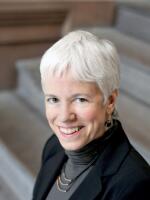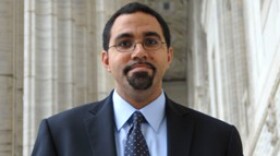One of the most controversial recommendations in New York Governor Andrew Cuomo’s anti-corruption commission report released this week is to enact public financing of campaigns for statewide elections.
The majority of the 25 Moreland Act Commissioners say a public campaign finance system modeled on New York City’s matching donor system is the only way to curb the undue influence of big money donors in state government.
But a dissenting recommendation from seven of the commissioners has been gaining more attention than the opinion of most of the commissioners. The dissenters say public campaign financing won’t make a difference, because the US Supreme Court has ruled that outside groups can spend as much money as they want to influence campaigns.
Governor Cuomo made a point of mentioning that dissent in his first remarks to the media after the report was released, saying he was not surprised.
“I understand that,” Cuomo said. “Public finance is a policy-slash- political issue.”
The governor said agreement on some of the other reform ideas might be easier to achieve.
Cuomo has long been a supporter of public campaign financing, it was one of his top agenda items in the 2013 legislative session. In the final weeks of the session, in June, he said numerous corruption scandals in the legislature made it all the more imperative that it be enacted.
“You needed public finance and campaign finance reform done ten years ago,” Cuomo said at the time.
But the governor was stymied by the State Senate, which is ruled by a coalition of Republicans and break away Democrats. The GOP is philosophically opposed to publicly funded campaigns. Senate Republican Leader Dean Skelos expressed reservations in an interview with public broadcasting earlier this year, saying the public won’t be pleased with how the money is used.
“So that taxpayer can then get the robo calls that they hate,” Skelos said.
Brian Sampson is with the pro-business group Unshackle Upstate, which is also against public campaign financing. He says the idea is not popular with the more conservative upstate voters that Cuomo hopes to win over in his re election bid in 2014.
“Now you’re going to go to taxpayers and say you’re going to use their money to fund, basically, welfare for politicians,” Sampson said. “I don’t think they’re going to appreciate that.”
Cuomo’s spokeswoman attempted to walk back the governor’s comments that seemed to be throwing cold water on the possibility of getting public campaign financing enacted in 2014, and the governor later clarified that he’s still “100%” for public campaign financing. But he admits, on a practical level, that the on going opposition in the GOP led Senate is a stumbling block to passage.
Even while supporting a public financing system, Cuomo has continued to play by the present fundraising rules, which allow large donations. He’s amassed a $30 million dollar war chest, and most recently held a fundraiser featuring performer Billy Joel, where the top tickets cost $50,000.
Meanwhile, supporters of public campaign finance reform are keeping the pressure on. Several groups held a rally on the steps of New York City Hall Wednesday. They’ve launched what they call “A Penny a Day Keeps Corruption Away” grassroots effort, saying by their estimates, public funding of campaigns would cost each New Yorker around $3 per year.







